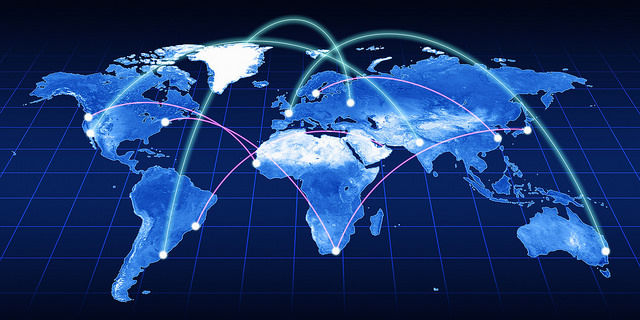Globalization, the process by which businesses, technologies, and philosophies spread across the globe, has been a dominant force in modern society. It has reshaped economies, cultures, and political landscapes, creating a world that is more interconnected than ever before. While globalization has brought about numerous benefits, including economic growth, technological advancements, and cultural exchange, it has also given rise to challenges such as increased inequality, cultural homogenization, and environmental degradation. This article explores the multifaceted impact of globalization on modern society, highlighting both its positive and negative aspects.
Economic Growth and Job Creation:
One of the most significant impacts of globalization has been its role in stimulating economic growth. By opening up markets and facilitating trade, globalization has allowed countries to specialize in the production of goods and services for which they have a comparative advantage. This has led to increased efficiency and productivity, contributing to economic expansion. Moreover, globalization has been a catalyst for foreign direct investment, which has created jobs and improved living standards in many parts of the world.
Cultural Exchange and Diversity:
Globalization has also fostered cultural exchange, making it easier for people to access and appreciate different cultures. The spread of music, art, literature, and cuisine has enriched societies, promoting a sense of global citizenship. However, this cultural exchange has also led to concerns about cultural homogenization, with some fearing that the dominance of Western culture could lead to the erosion of local traditions and identities.
Technological Advancements and Innovation:
The global spread of technology has been a hallmark of globalization. The internet, smartphones, and other digital technologies have revolutionized communication, making it possible for people to connect instantly across vast distances. This has not only facilitated social interaction but also accelerated the pace of innovation, as ideas and knowledge can now be shared more easily than ever before.
Increased Inequality:
Despite its benefits, globalization has also been criticized for exacerbating inequality. While it has lifted millions out of poverty, the gains have not been evenly distributed. Wealth has tended to accumulate among those who are already well-off, both within and between countries. This has led to a widening gap between the rich and the poor, fueling social tensions and political unrest in some cases.
Environmental Degradation:
The environmental impact of globalization is another area of concern. The increased production and consumption associated with global trade have put significant pressure on the planet’s resources. Deforestation, pollution, and climate change are all issues that have been amplified by the globalized economy. As the world becomes more interconnected, the need for sustainable practices and environmental protection has become increasingly urgent.
Conclusion:
The impact of globalization on modern society is complex and multifaceted. It has driven economic growth, fostered cultural exchange, and accelerated technological innovation, but it has also contributed to increased inequality and environmental degradation. As we move forward, it is essential to address the challenges posed by globalization while harnessing its benefits. By doing so, we can create a more equitable, sustainable, and interconnected world.
